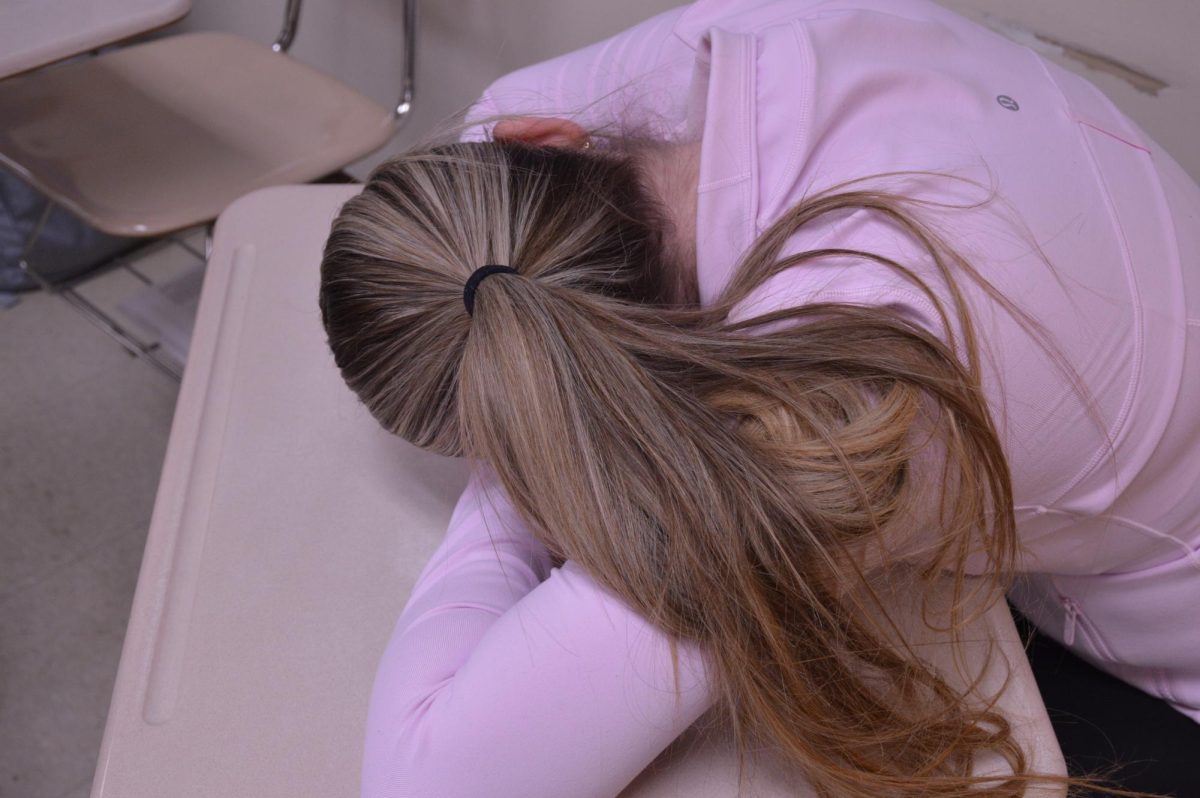It is a familiar scene: You lie awake, unsure of the time, staring at the back of your eyelids, unable to sleep.
Whether from consuming caffeine too late, staring at your phone too long, or being restless, you cannot get any shut-eye for one reason or another.
For some, it is a one-night thing—a momentary break in an otherwise steady cycle of healthy rest. But for many individuals, especially teens, this exhausting cycle is simply a nightly routine. According to Stanford University, 87 percent of high school students were getting far less sleep than necessary regularly, and the hours they do sleep decreased.
Inadequate sleep is linked to depression, anxiety, migraines, mental fog and much more. Combine this with the fact that brain health is proven to be directly correlated with physical health, and all that is left is ill, aching and unmotivated students.
With the demands of rigorous coursework, extracurricular activities and social pressures, many students regularly sacrifice precious hours of sleep.
One of the primary contributors to insufficient sleep is the heavy academic workload imposed on high school students. The pressure to excel academically often leads to late-night study sessions and assignment completion, leaving students with limited time for rest. The consequences of this sleep loss extend beyond academic struggles, affecting various aspects of their daily lives.
“Sleep deprivation makes me nauseous, miserable and not as efficient in my tasks,” Austin Goodwin said.
Mentally, the adolescent brain undergoes significant development, making adequate sleep crucial for cognitive functions. Sleep is essential for memory retention, problem-solving skills and overall cognitive performance. When students consistently lack sufficient sleep, their ability to concentrate in class, retain information and perform well on exams is compromised. This reduces their academic achievements and sets the stage for long-term consequences in terms of cognitive development.
Furthermore, insufficient sleep can harm the mental health of high school students. Adolescence is a period of heightened emotional sensitivity, and sleep deprivation can promote feelings of stress, anxiety and irritability. The toll of chronic sleep deficiency adds up.
In addition to academic pressures, extracurricular activities and part-time jobs further diminish the time available for high school students to get adequate sleep. The desire to excel in sports, music or other interests can lead to late-night practices and rehearsals. Balancing these commitments with academic responsibilities becomes a delicate juggling act, leaving students with little room for rest.
Social factors also play a significant role in sleeplessness. Social media and electronic devices contribute to a culture of constant connectivity in the modern age. Late-night scrolling through social platforms or engaging in online conversations can extend into the early morning hours, robbing people of valuable sleep time.
Parents and teachers play a crucial role in addressing this issue. Educating both students and their guardians about the importance of sleep hygiene and time management is essential.
Schools could implement policies that promote a healthy balance between academic pursuits and the well-being of students, such as limiting the amount of homework assigned or setting reasonable expectations for extracurricular involvement. Additionally, school districts could consider pushing the start time of classes each day to allow more time in students’ schedules for rest.
Efforts should also be made to create a supportive environment where students feel comfortable discussing their challenges and seeking help when needed. School counselors also play an essential role in identifying students who may be struggling with sleep deprivation and connecting them with appropriate resources.
Moreover, schools must consider the scheduling of classes and extracurricular activities. Ensuring that daily routines allow for adequate sleep can positively impact high school students’ overall health and performance.
From academic struggles to mental health challenges, the impact of chronic sleep deprivation is significant.
Addressing this problem requires a collaborative effort from educators, parents, and students themselves to prioritize the importance of sleep and implement strategies that foster a healthier balance between academic pursuits and well-being.
